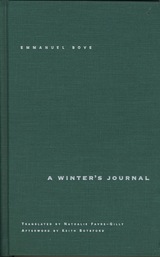
Fascism was the first and prime instance of a modern political religion. Rereading signs, symbols, cults, and myths, Italy's leading scholar of Fascism offers a new history of Italian nationalism as a civic religion, albeit in its extreme form, and of Italian Fascism as a vital catalyst for contemporary mass politics. Emilio Gentile decodes Italy culturally, going beyond political and social dimensions that explain Italy's Fascist past in terms of class, or the cynicism of its leaders, or modernizing and expansionist ambitions.
By looking back at the Risorgimento's civic and moral renewal of the Italians as a free people educated in the faith and worship of a "national religion," at the jarring countereffects of the secularized nation-state not trusting mass political mobilization, and at Fascism's retrieval of history from Rome, the French Revolution, and Romanticism, Gentile reconstructs the cultural configurations of a sacred politics. He shows how Mussolini used the concept of propaganda as a project in civic pedagogy, and how the Fascists thus cultivated a new consciousness that filled the void left by the decline of traditional religion. Fascism mobilized the masses through spectacle and public ceremony in an effort to conquer and shape the mentality and customs of a still emerging nation.

Every few days for one winter, Louis writes down the details of his unhappy marriage. Although his wife, Madeleine, is the focal point of his journal, his painstakingly rendered analyses of her behavior tell us more about him than her, and about the harm two people can do to one another. Unsparing and insightful, A Winter's Journal remains one of the most devastating novels ever written on the self-destructive impulse present in all marriages.

Feminist thought has wrestled with the question of whether religion has been principally responsible for the oppression of women or instead has provided access to culture, public life, and--sometimes--power. This study of Italian women and Catholicism from the fourth through the twentieth century reflects this conflict and the tension between the masculine character of divinity in the Catholic Church and the potential for equality in the gospels and early writings ("neither male nor female, but one in Jesus").
The various chapters in this book consider the institutions within which religious women lived, many of which they themselves founded or reorganized. In addition to overviews of women and the religious life throughout the periods under study, specific chapters focus on mystical marriage, religious writings by women, secular writings by nuns, women in sacred images, women in the nineteenth-century Christian family, Marian pilgrimages, and depictions of sisters and saints in film. The authors, leading American, Italian, and French scholars, have drawn on rich resources to provide a panorama of sixteen centuries of Italian history, religious history, and women's history.
READERS
Browse our collection.
PUBLISHERS
See BiblioVault's publisher services.
STUDENT SERVICES
Files for college accessibility offices.
UChicago Accessibility Resources
home | accessibility | search | about | contact us
BiblioVault ® 2001 - 2024
The University of Chicago Press









